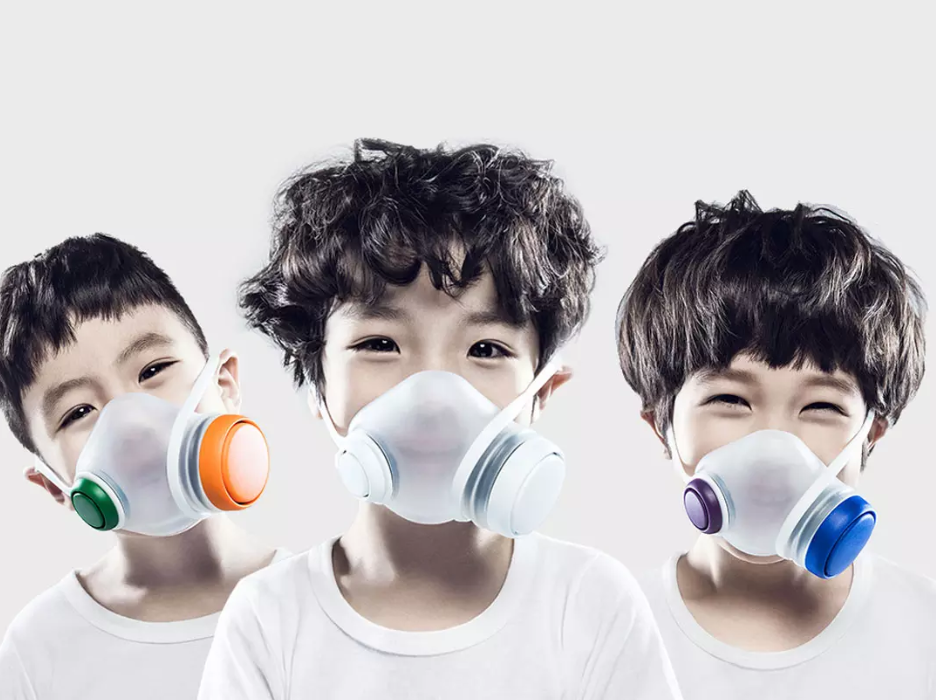After coronavirus, smart masks may be our weapon against 21st century plagues
They may be too late for the actual coronavirus, though

One of the biggest consumer electronics manufacturers in the world wants to monitor health through a new type of facial mask capable of monitoring atmospheric and body conditions in real time, but its patented technology may arrive too late to defend ourselves against this first wave of coronavirus.
Chinese company Xiaomi is working on a new type of facial “smart mask” that will keep track of the air around us and coming out of our lungs using built-in sensors and electronic systems. The company — which is the fourth largest smartphone manufacturer in the planet and sells everything from TVs to electric scooters worldwide — is already selling masks in China as fast as it can make them thanks to the coronavirus epidemic.
But the new patented mask does a lot more than its current Xiaomi Youpin F95 Face Mask (seen above). The patent — published by the United States Patent and Trademark Office — describes a new type of high tech wearable equipped with sensors that capture information about the environment and the wearer’s health.
- Coronavirus map shows infections and deaths in real time
- Coronavirus: what you need to know
- Crooks using coronavirus to spread malware
Constant monitoring of environment and user’s breathing, activity
Inside, there is also the necessary processor and electronics to collect that data in real time, storing it for access by other devices like smartphones or computers in the cloud. The mask also has its own battery power to both feed these electronics and the device’s air filter.
The mask is also designed to know what the user is doing using accelerometers and gyroscopes. According to Xiaomi, this will help computers to make a more exact calculation about pollution absorption: the more active the user is, the more air will be taken in. These sensors help record “total wearing time, pollution absorption, breathing volume, breath counts” and others.
Talking to your smartphone or smartwatch, the facial device will be able to tell users about both the quality of the air around them, as well, as alerting the user or doctors of any potential breathing abnormalities.
The unstoppable rise of the health wearable
We have seen the rise of wearables to keep track of our health in the last few years. The Apple Watch has become the epitome of this wave of devices. Apple’s tiny gadget can monitor some aspects of your heart’s health and body activity but it still missing a lot of stuff. It seems that Xiaomi, given the current climate of fear, uncertainty, and doubt, wants to go a lot further with active monitoring of a lot more external and internal parameters. Plus, a mask — unlike a watch — can actually protect you against many environmental threats.
Sign up to get the BEST of Tom's Guide direct to your inbox.
Get instant access to breaking news, the hottest reviews, great deals and helpful tips.
Can you imagine a future in which everyone is wearing masks along with their smartphones? In China — and many other parts of the globe — they don’t have to imagine it. They have been doing it for years now and it’s only going to keep happening. So it makes total sense to make those masks smart and more useful.
Still, it’s a bloody scary world when consumer electronics companies are making devices like this to keep us safe. But this, I’m afraid, is exactly were we are headed. Too bad that the miniaturized technology to detect pathogens in real time doesn’t exist yet. It will happen eventually, but all we hypochondriacs can use some of that action right now.
Jesus Diaz founded the new Sploid for Gawker Media after seven years working at Gizmodo, where he helmed the lost-in-a-bar iPhone 4 story and wrote old angry man rants, among other things. He's a creative director, screenwriter, and producer at The Magic Sauce, and currently writes for Fast Company and Tom's Guide.

